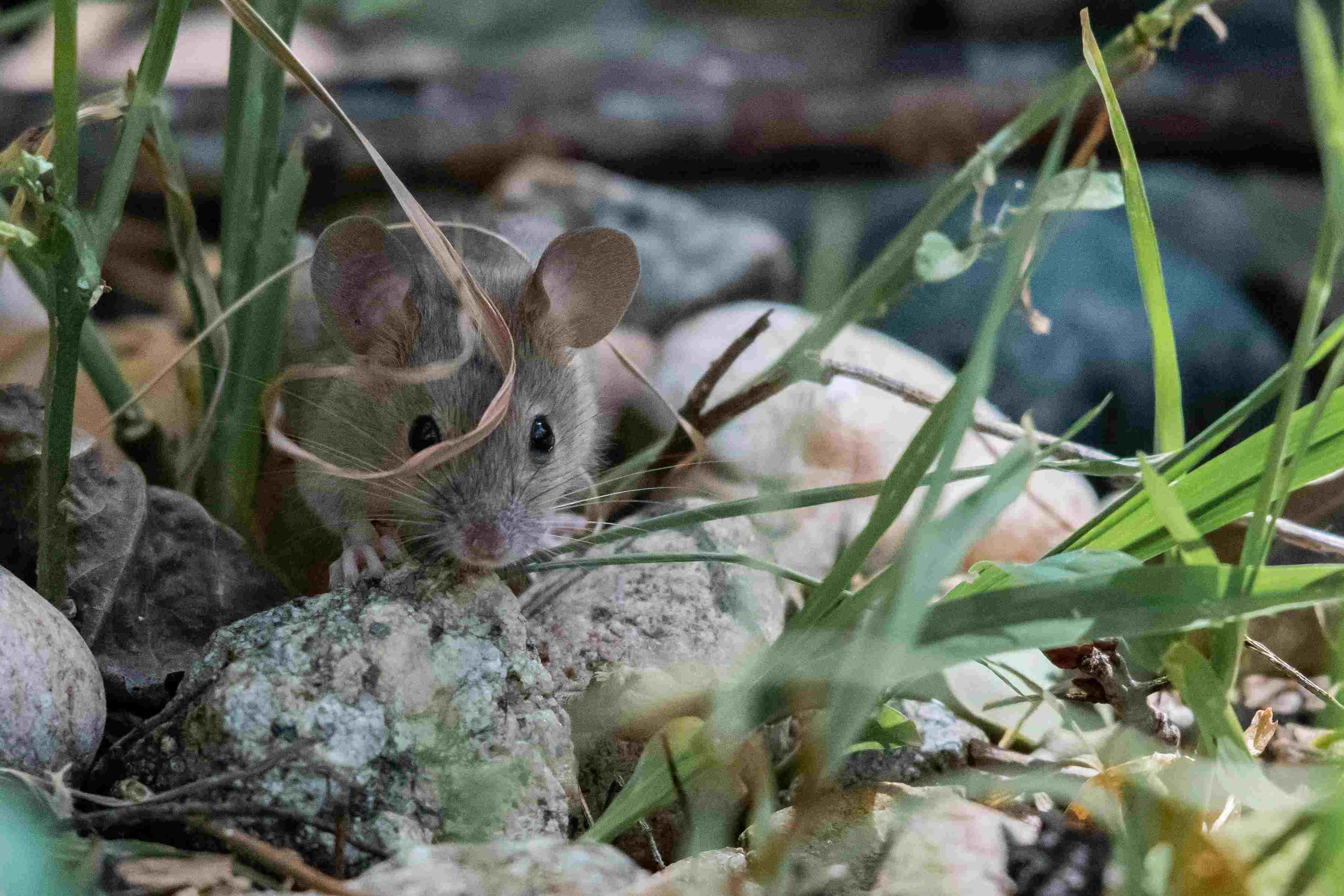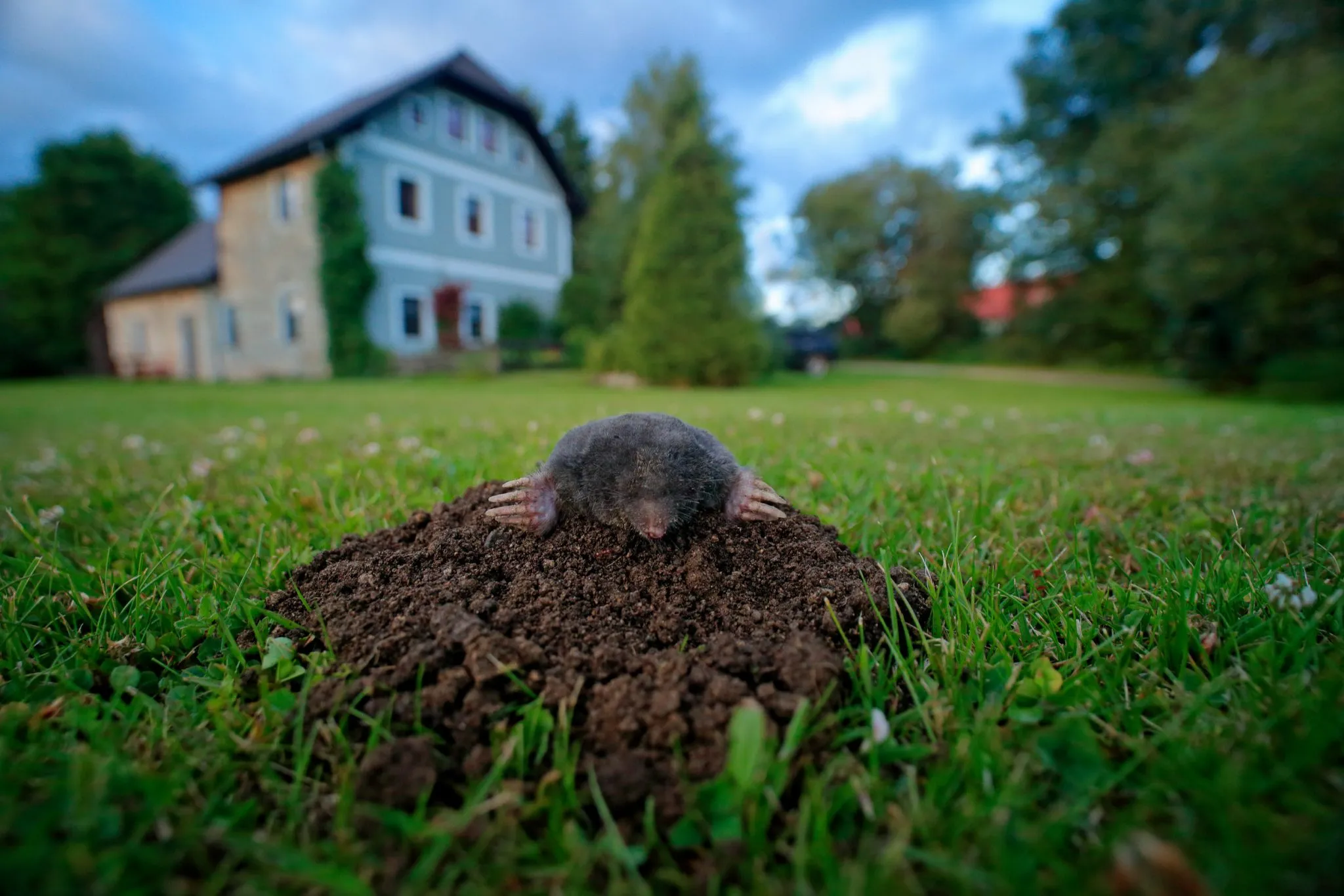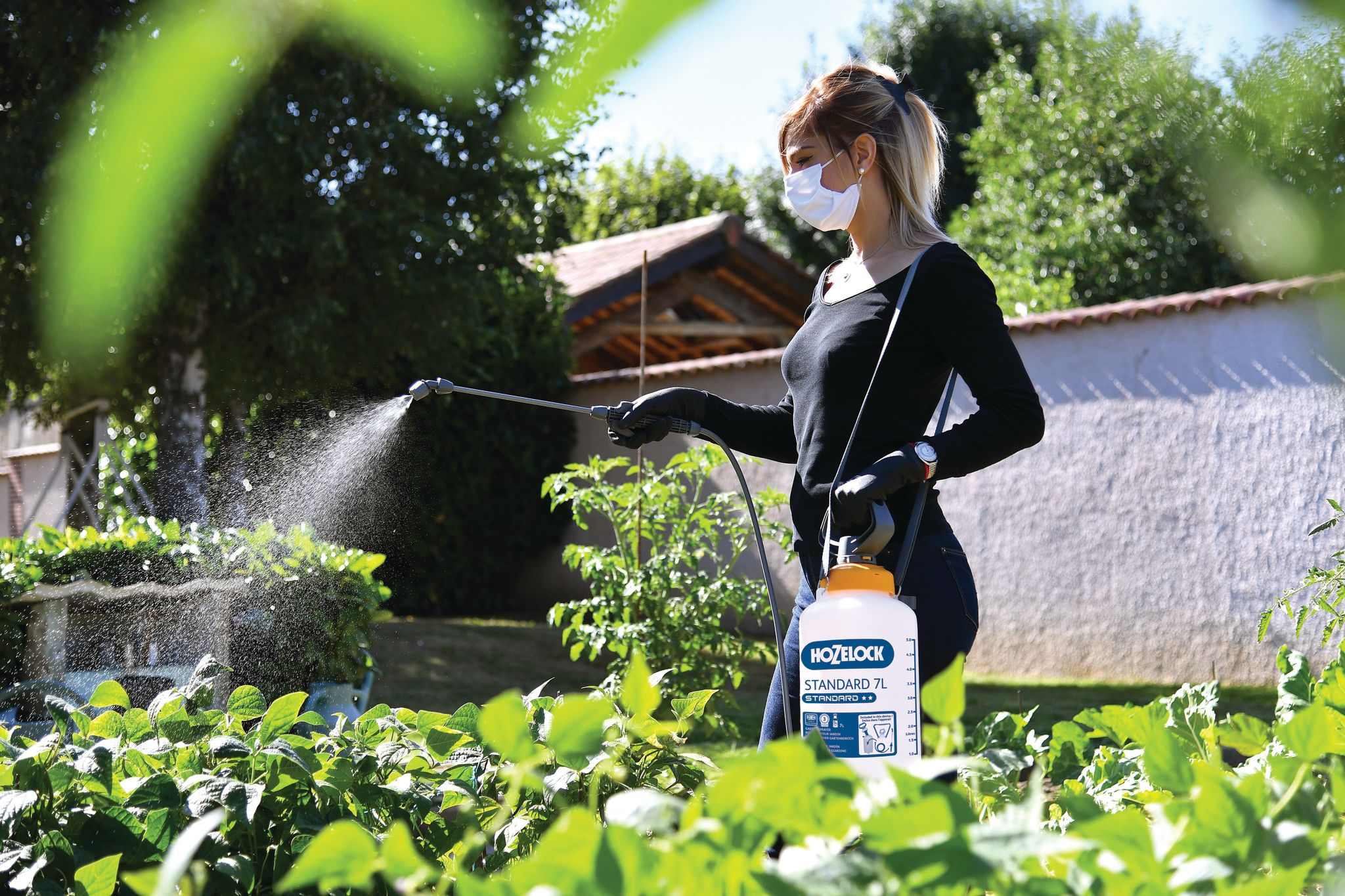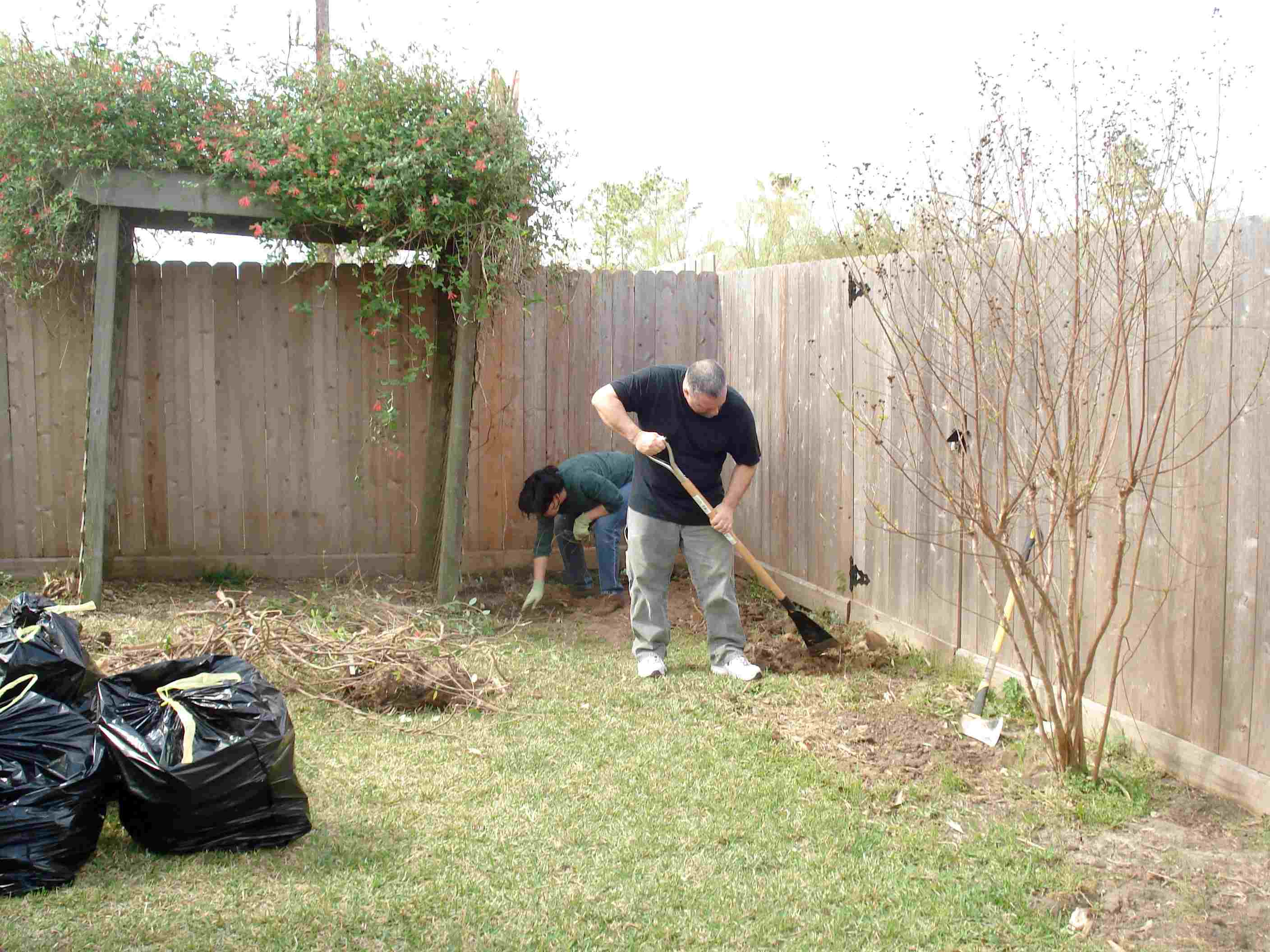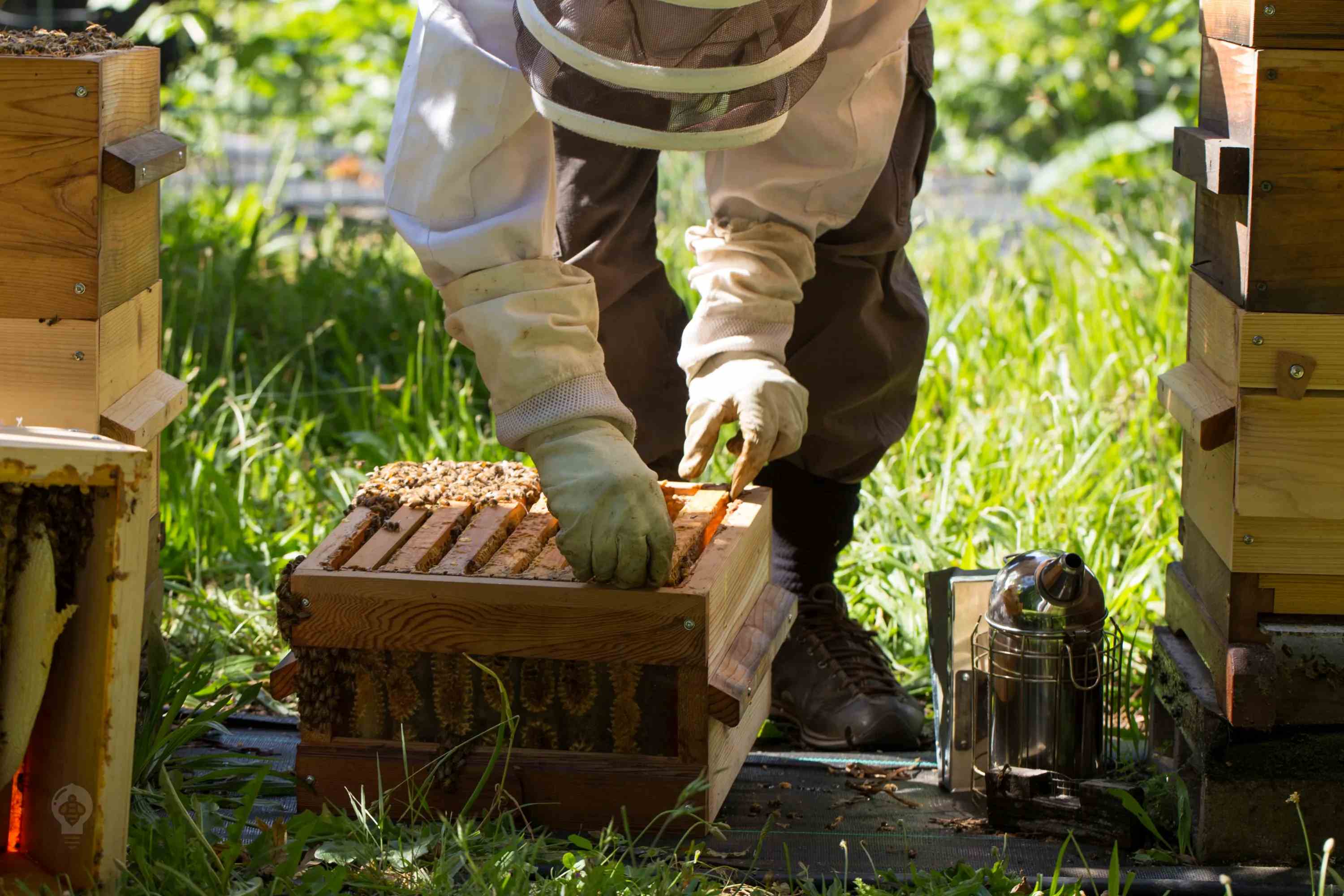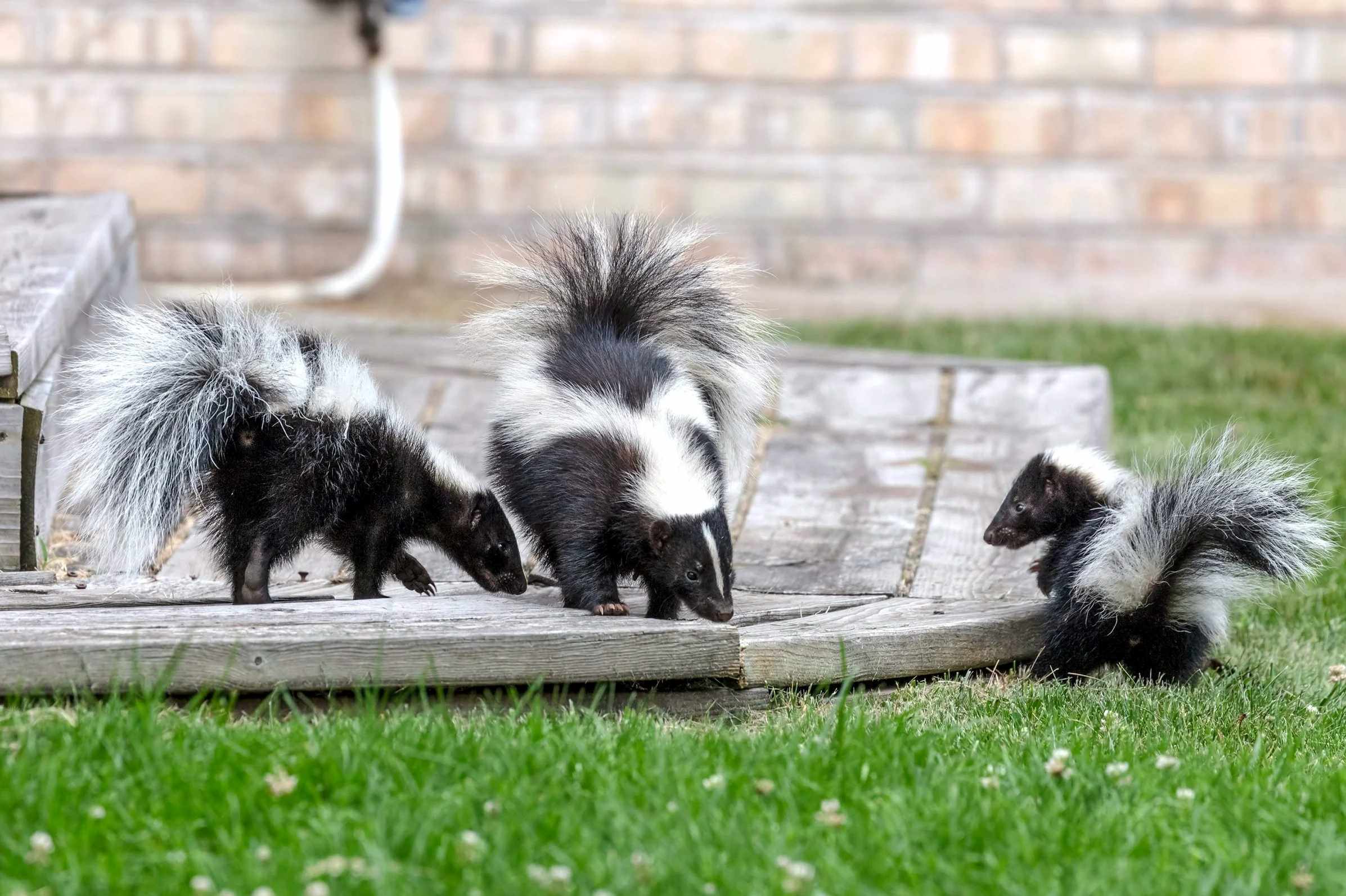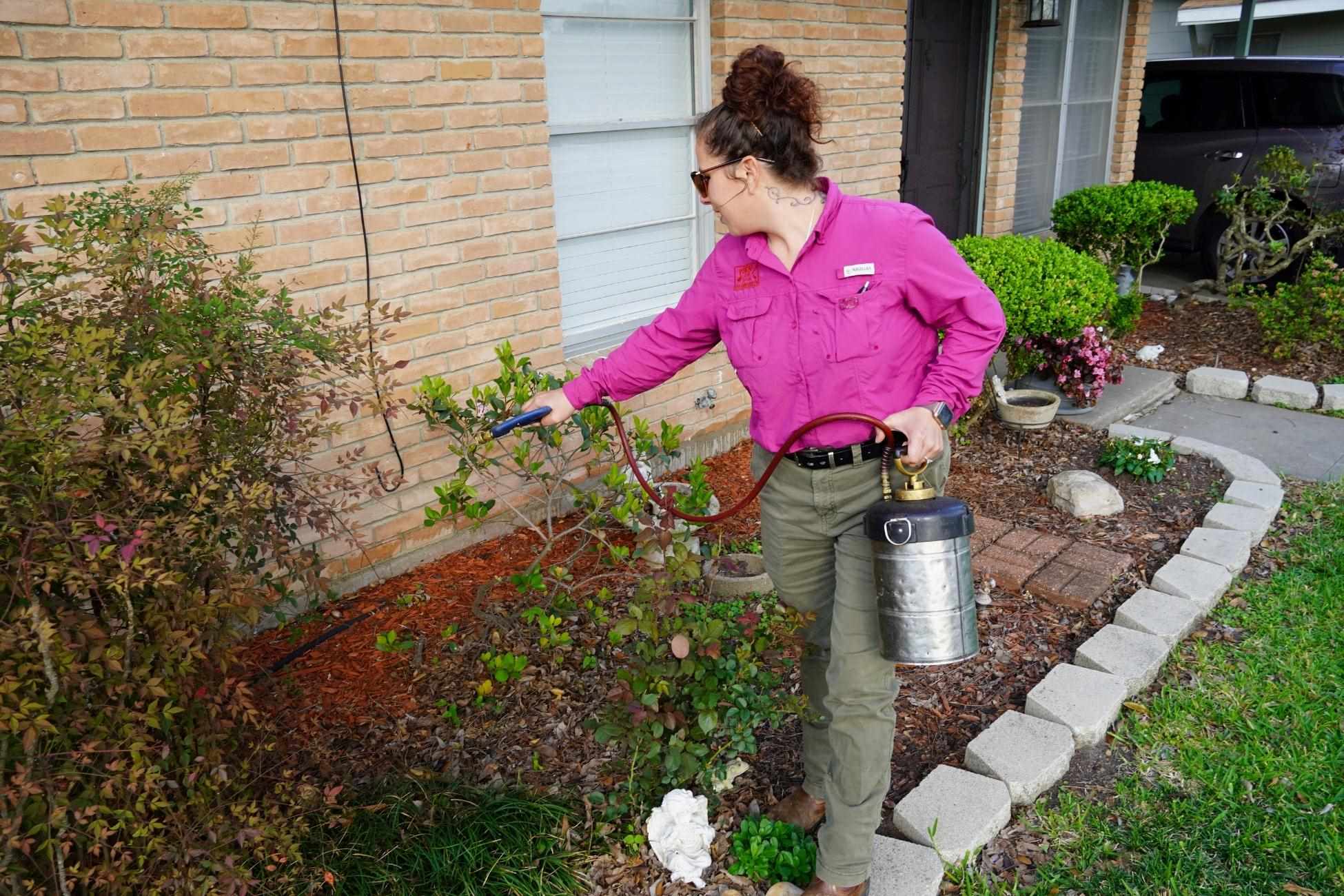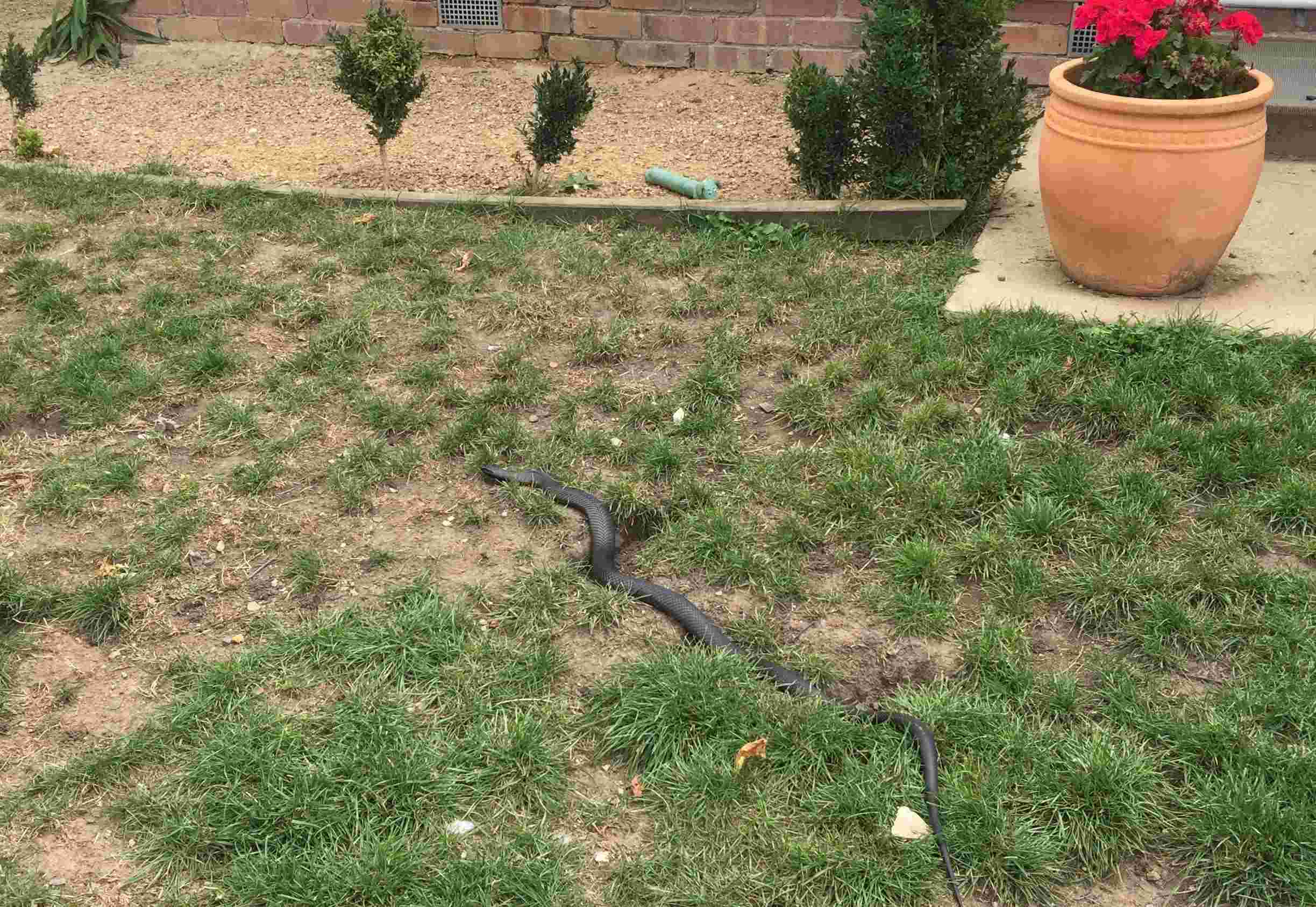Home>Gardening Tips and Tricks>How To Get Rid Of Rabbits In My Backyard
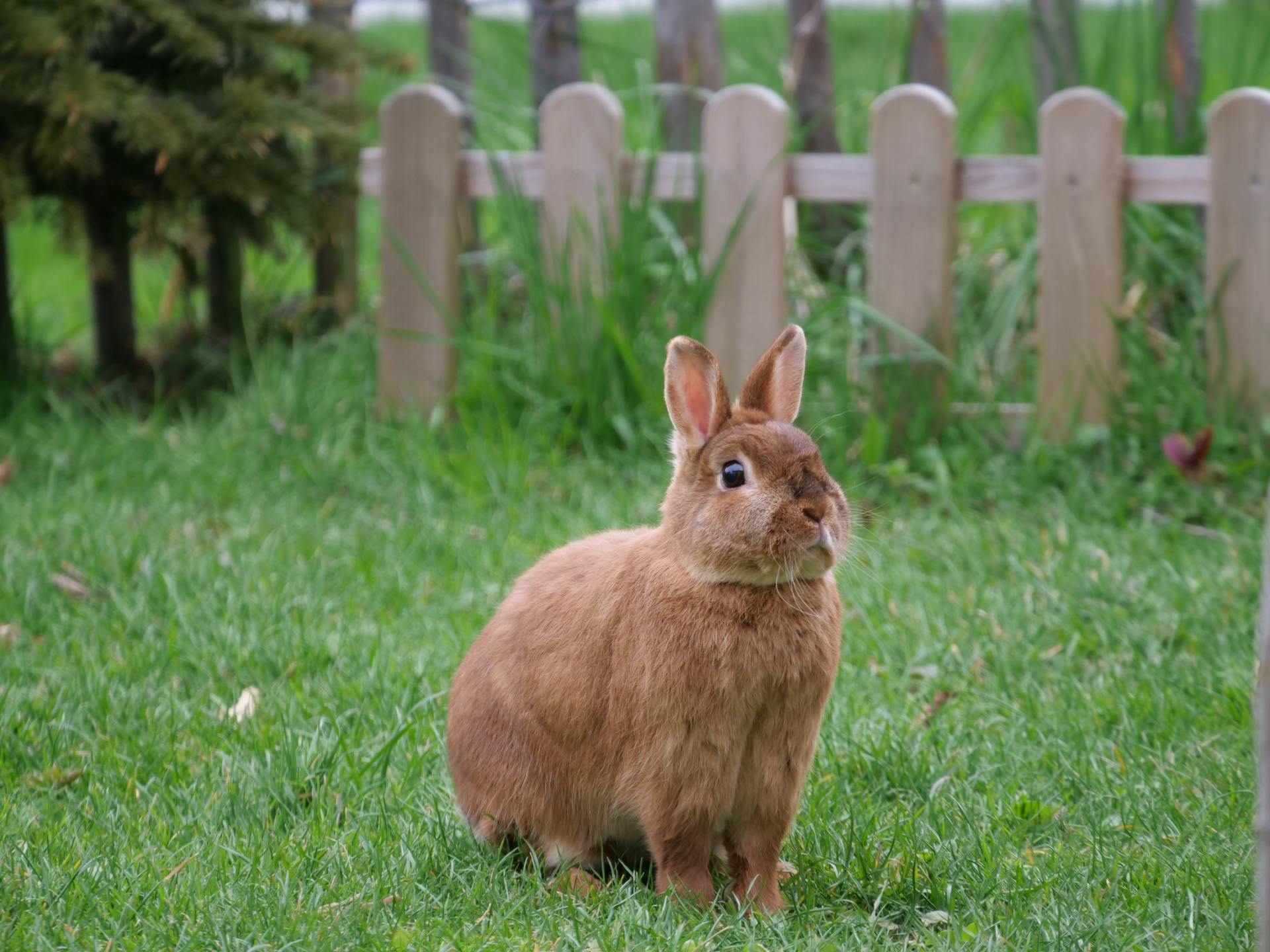

Gardening Tips and Tricks
How To Get Rid Of Rabbits In My Backyard
Modified: January 22, 2024
Looking for solutions to the rabbit problem in your backyard? Discover effective ways to get rid of rabbits and reclaim your outdoor space.
(Many of the links in this article redirect to a specific reviewed product. Your purchase of these products through affiliate links helps to generate commission for Chicagolandgardening.com, at no extra cost. Learn more)
Table of Contents
Introduction
Welcome to the world of gardening, where flowers bloom, vegetables thrive, and the occasional furry intruder wreaks havoc in your backyard. Yes, we’re talking about rabbits – those cute, fluffy creatures that can become a nuisance when they invade your carefully nurtured green space.
For many homeowners, rabbits in the backyard can be a frustrating problem. They have a voracious appetite for plants, flowers, and vegetables, leaving a trail of destruction in their wake. Not only do they devour your cherished flora, but they can also dig holes and burrows, potentially damaging the landscaping and compromising the structural integrity of your yard.
But fear not! In this article, we’ll explore various methods to get rid of rabbits in your backyard, helping you reclaim your garden sanctuary. From natural deterrents to physical barriers and even chemical solutions, we’ll cover a range of strategies to suit your preferences and needs.
While rabbits may be cute and seemingly harmless, it’s important to manage their population and control their presence to protect your beloved plants and maintain the integrity of your backyard. Let’s dive into the world of rabbit control and find the best solutions to keep them at bay.
Understanding Rabbits in Backyards
Before we delve into how to get rid of rabbits in your backyard, it’s essential to understand these furry creatures and their behavior. Knowing more about their habits and patterns will help you develop effective strategies to deter them.
Rabbits are small mammals that belong to the family Leporidae. They have long ears, a fluffy tail, and powerful hind legs that enable them to hop and bound with ease. These animals are herbivores, meaning they primarily feed on vegetation.
In the wild, rabbits inhabit various environments, including forests, meadows, and grasslands. However, they are highly adaptable and can thrive in suburban areas, including your backyard. They reproduce at an alarming rate, with the ability to have multiple litters per year, each containing several offspring.
Rabbits are primarily active during the early morning and late evening, although they can sometimes be seen grazing during the day. They have a keen sense of smell, excellent hearing, and good eyesight, which helps them detect potential threats.
When it comes to your backyard, rabbits are particularly attracted to areas with a readily available food source and cover for protection. They are known to target a wide range of plants, including flowers, vegetables, and young, tender shoots.
Understanding the reasons why rabbits are attracted to your backyard is crucial in determining the best approach to keep them away. By eliminating the incentives that draw them to your garden, you can significantly reduce the likelihood of rabbit infestation.
In the next sections, we will explore different methods to deter rabbits, including natural solutions, physical barriers, chemical solutions, and more. By combining these strategies, you’ll be well-equipped to create a rabbit-free zone in your backyard.
Identifying Rabbit Damage
Before we jump into the measures to get rid of rabbits, it’s important to be able to identify the damage caused by these critters. By recognizing rabbit damage early on, you can take swift action to mitigate the destruction and protect your precious plants.
Here are some signs that indicate rabbits have been visiting your backyard:
- Nibbled plants: Rabbits have a penchant for munching on young, tender vegetation. Look for partially eaten leaves, stems, or flowers. They typically leave a clean, angled cut or a jagged edge.
- Burrows: Rabbits create burrows by digging holes in the ground. These burrows can serve as homes or shelters and can compromise the integrity of your yard. Keep an eye out for small, round holes or disturbed soil.
- Scattered droppings: Rabbit droppings resemble small, round pellets, similar to those of a deer. They are typically dark in color and can be found in areas where rabbits spend time feeding.
- Trampled or damaged foliage: Rabbits may trample on plants while foraging or chasing each other. Look for areas where the vegetation appears flattened or damaged.
- Visible tracks: Rabbits have distinctive tracks with four toes on the front and five on the hind feet. Look for footprints in muddy areas or soft soil.
Identifying these signs of rabbit damage will help you confirm their presence and take appropriate action. Keep in mind that while rabbits can be the culprit, other animals or insects may also cause similar damage. If you’re unsure, consider setting up a trail camera or consulting with a local wildlife expert to confirm the culprit.
With a keen eye and a proactive mindset, you’ll be able to spot rabbit damage early on and implement the necessary control methods to safeguard your garden.
Natural Methods to Deter Rabbits
When it comes to deterring rabbits from your backyard, there are several natural methods you can employ that are safe for both the environment and your plants. These solutions help create an unfavorable environment for rabbits, encouraging them to seek greener pastures elsewhere.
1. Plant rabbit-resistant varieties: Opt for plants that are less appealing to rabbits. Some examples include marigolds, geraniums, snapdragons, and lavender. Rabbits tend to avoid these plants due to their strong scent or unpalatable taste.
2. Use predator scents: Rabbits have a strong sense of smell and are wary of predators. You can take advantage of this by using predator scents like fox urine or coyote urine. These scents can be found in garden centers and are effective in deterring rabbits from your yard.
3. Install motion-activated sprinklers: Rabbits dislike sudden movements and being sprayed with water. Installing motion-activated sprinklers in your garden can startle rabbits and discourage them from returning. These sprinklers are triggered by movement and provide an effective deterrent.
4. Create physical barriers: Fencing is a practical and effective way to keep rabbits out of your garden. Use chicken wire or hardware cloth to create a barrier around vulnerable areas. Ensure that the fence is buried at least 6 inches deep to prevent rabbits from burrowing underneath.
5. Remove hiding spots: Rabbits seek cover and protection in tall grass, shrubs, and debris. Remove these hiding spots by keeping your lawn mowed, clearing away brush piles, and tidying up your backyard. By eliminating their hiding places, you make your yard less attractive to rabbits.
6. Apply natural repellents: Certain natural repellents can be used to discourage rabbits. For instance, you can make a mixture of water and garlic or pepper and spray it on your plants. The strong odors are unappealing to rabbits and may deter them from feasting on your garden.
7. Introduce natural predators: Encouraging natural predators of rabbits, such as hawks, owls, or snakes, can help control their population. Consider creating habitats or installing birdhouses to attract these predators to your backyard. However, be mindful of the balance between maintaining a healthy ecosystem and ensuring the safety of other wildlife.
Remember, while these natural methods can be effective in deterring rabbits, they may not offer 100% protection. It’s essential to combine multiple strategies and adapt them based on your specific needs and the severity of the rabbit infestation in your area.
Building Physical Barriers
When it comes to keeping rabbits out of your backyard, physical barriers are one of the most reliable and effective methods. By creating a physical barrier, you can ensure that rabbits are unable to access your precious plants and wreak havoc on your garden. Here are some practical solutions to consider:
1. Fencing: Installing a fence around your garden is a tried-and-true method to keep rabbits at bay. Use a sturdy material like chicken wire or hardware cloth with small openings to prevent rabbits from squeezing through. Make sure the fence is at least 2 feet high, and bury it at least 6 inches deep to discourage digging.
2. Raised beds: Building raised beds can provide an extra layer of protection against rabbits. By elevating your plants, you make it more challenging for rabbits to access them. Construct raised beds using materials like wood or stone, and make sure the sides are tall enough to deter rabbits from jumping in.
3. Cylinder guards: For individual plants or small areas, consider using cylinder guards made of wire mesh or hardware cloth. These guards can be placed around vulnerable plants, creating a barrier that rabbits cannot penetrate. Ensure the cylinder is tall enough and buried securely in the soil to prevent rabbits from crawling underneath.
4. Cloches and row covers: Cloches and row covers are transparent or translucent covers made of plastic or fabric that shield individual plants or entire rows. By placing these covers over your plants, you create a physical barrier that denies rabbits access while still allowing sunlight and moisture to reach the plants.
5. Repellent plants: Consider planting rabbit-resistant species strategically around your garden’s perimeter. Plants with thorny or prickly foliage can act as a natural deterrent, making it less appealing for rabbits to approach. Examples include barberry, holly, or roses with thorns.
Remember to regularly inspect your physical barriers and make any necessary repairs. Rabbits are persistent creatures and may attempt to find weak spots in your defenses. By ensuring that your barriers are intact and secure, you can effectively keep rabbits out of your garden.
Implementing Chemical Solutions
If natural methods and physical barriers haven’t provided the desired results in deterring rabbits from your backyard, you may consider implementing chemical solutions. It’s important to note that chemical solutions should be used as a last resort and with caution, as they may have potential environmental impacts. Here are some options to consider:
1. Repellent sprays: There are commercially available repellent sprays specifically designed to deter rabbits. These sprays typically contain natural ingredients with strong odors that rabbits find unpleasant. Follow the instructions carefully and apply the spray on plants or areas that rabbits frequently target.
2. Capsaicin-based repellents: Capsaicin is a compound found in chili peppers that can act as a potent repellent for rabbits. These repellents can be applied to plants or the surrounding soil. The strong taste and scent are typically effective in deterring rabbits from feeding on your garden. Wear protective gloves and follow the instructions provided.
3. Commercial rabbit repellents: There are various commercial repellents available in the market that have been formulated specifically to repel rabbits. These products often contain a combination of active ingredients that rabbits find unappetizing. Read the labels carefully, and be sure to follow the instructions for application.
4. Homemade deterrents: If you prefer a DIY approach, you can create your own rabbit deterrent using household ingredients. For example, a mixture of water, vinegar, and dish soap can be sprayed on plants to deter rabbits. Remember to test any homemade solutions on a small area before applying them to your entire garden.
5. Predator urine: Similar to natural methods, predator urine can be used as a chemical deterrent. The scent of predator urine, such as fox or coyote urine, can create a perception of danger for rabbits, causing them to stay away. Predator urine can be purchased from garden centers or online and applied according to the instructions.
When using chemical solutions, always read and follow the instructions provided by the manufacturer. Take precautions to protect yourself and the environment, and avoid applying chemicals directly to plants that you intend to consume.
It’s important to note that chemical solutions should be used sparingly and as a supplement to other deterrent methods. Implementing a combination of strategies can increase your chances of successfully deterring rabbits from your backyard while minimizing any potential negative effects.
Removing Attractants from Your Backyard
One effective approach to deterring rabbits from your backyard is to remove the attractants that draw them in the first place. By making your yard less appealing to rabbits, you can significantly reduce their presence and the potential damage they cause. Here are some key steps to follow:
1. Remove food sources: Rabbits are attracted to a variety of plants and vegetation. Identify the plant species that rabbits tend to target and consider removing or relocating them to a more secure area. Additionally, avoid leaving fallen fruits or vegetables in your yard, as they can entice rabbits to linger.
2. Secure garbage and compost bins: Rabbits are notorious nosy creatures and may rummage through your garbage or compost bins in search of food scraps. Ensure that your bins are tightly sealed and inaccessible to rabbits. Consider using secure lids or placing the bins in a fenced area to prevent access.
3. Clear debris and hiding spots: Rabbits seek shelter and protection in tall grass, brush piles, and other debris. Regularly clean up your yard, removing any accumulated debris and trimming tall grass or shrubs. By eliminating potential hiding spots, you make your yard less inviting for rabbits.
4. Clean up fallen birdseed: If you have bird feeders in your backyard, ensure that any spilled birdseed is promptly cleaned up. Rabbits will be attracted to the food source, so reducing the availability of spilled seeds will discourage their presence.
5. Install motion-activated lights: Rabbits are nocturnal creatures and are less likely to intrude in well-lit areas. Installing motion-activated lights can startle them and make your yard less appealing for their nocturnal visits.
6. Enclose gardens and flower beds: If rabbits consistently target specific areas of your yard, consider enclosing those areas with wire mesh or fences. This additional layer of protection can deter rabbits from accessing your plants and prevent them from causing damage.
By implementing these steps, you can effectively remove the attractants that entice rabbits to invade your backyard. Remember that consistency is key, as rabbits are persistent creatures that may return if they find enticing resources in your yard.
Seeking Professional Help
If your efforts to deter rabbits from your backyard have been unsuccessful or if the rabbit population is overwhelming, it may be time to seek professional help. Wildlife experts and pest control professionals have the knowledge and expertise to address the issue effectively. Here are some reasons why you might consider contacting a professional:
1. Identify the extent of the problem: A professional can assess the severity of the rabbit infestation and determine the appropriate course of action. They can identify the entry points, nesting sites, and areas of high rabbit activity, providing valuable insights for effective control measures.
2. Recommend tailored solutions: Based on their assessment, professionals can recommend the most appropriate and tailored solutions to effectively manage the rabbit population in your backyard. They have access to a wide range of methods and techniques that are suitable for your specific situation.
3. Implement humane control methods: Professionals are experienced in using humane methods to control rabbit populations, which can include live trapping and relocation. They can ensure that the rabbits are handled with care and relocated to a more suitable habitat, minimizing harm to the animals.
4. Compliance with local regulations: In some areas, certain regulations and guidelines govern the control and removal of wildlife, including rabbits. Pest control professionals are knowledgeable about these regulations and can ensure that their methods comply with the local laws and guidelines.
5. Long-term prevention strategies: Professionals can provide valuable advice on long-term prevention strategies to minimize the likelihood of future rabbit infestations. They can recommend modifications to your yard, suggest plant choices that are less attractive to rabbits, or advise on habitat modifications that deter their presence.
When choosing a professional, ensure that they are licensed, experienced, and have a good reputation. Seek recommendations from neighbors, friends, or local gardening clubs to find reliable experts in wildlife control. It’s important to communicate your concerns, budget constraints, and any preferences for humane methods so that they can tailor their approach accordingly.
Remember, professional help can be a valuable resource when dealing with persistent rabbit problems. Their expertise can save you time, effort, and frustration, helping to restore your backyard to a peaceful and flourishing space.
Conclusion
Dealing with rabbits in your backyard may seem like a daunting task, but with the right strategies and persistence, you can successfully keep them at bay and protect your cherished plants. By understanding rabbit behavior, identifying the signs of damage, and implementing appropriate deterrent methods, you can create an environment that is less appealing to these furry intruders.
Natural methods, such as planting rabbit-resistant varieties, using predator scents, and removing attractants, can help deter rabbits without causing harm to the environment or your plants. Building physical barriers, such as fences, raised beds, and cylinder guards, can provide a reliable defense against rabbit intrusion. Utilizing chemical solutions, while being cautious and following instructions, can be an effective last resort when other methods aren’t enough.
Additionally, seeking professional help from wildlife experts or pest control professionals can provide valuable insights, tailored solutions, and humane methods to manage rabbit populations effectively. They can also offer guidance on long-term prevention strategies to minimize future infestations.
Remember, a multi-faceted approach is often the key to successfully deterring rabbits from your backyard. By combining several strategies, continuously monitoring your garden, and adapting methods as needed, you can create a rabbit-free sanctuary where your plants can thrive.
With patience, persistence, and a bit of creativity, you can regain control of your backyard and enjoy a flourishing garden free from the nibbling antics of rabbits.
